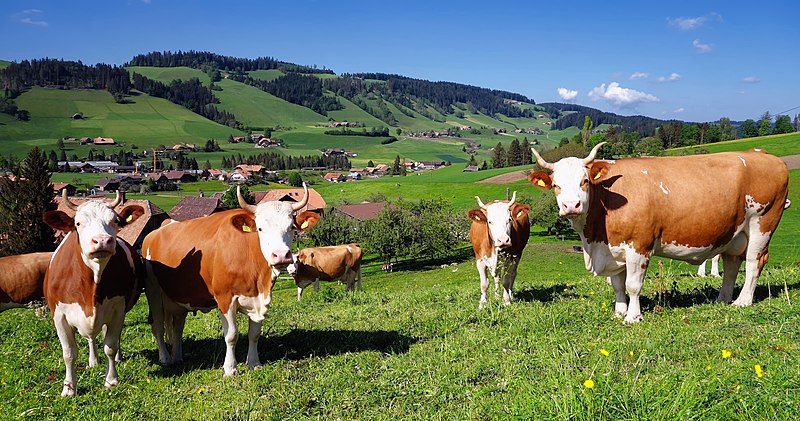Cows and Methane Gas
Cows Passing Gas: How Big is the Problem?
With the continued rise in global temperatures, individuals and governments alike are looking for solutions on how to stop and even reverse the damage already done to the environment. While reducing carbon emissions and other pollutants is a great start, many have overlooked a major contributor to global warming – cows.
Before understanding why cows have such a large impact on global warming, it’s important to understand where methane – a greenhouse gas – comes from. Cows, alongside other animals, are a major source of methane production. Through a natural process of digestion, cows are able to convert food, specifically grass, into energy. During this process, the stomachs of cows expel methane gas which gets released into the atmosphere.
Methane gas is a powerful greenhouse gas that has an evident and direct influence on global warming. Cows are the primary source of this gas, with over 1 billion cows on Earth emitting around 100 million tonnes of the stuff every year. While that might not sound like a lot, it’s important to note that methane gas is a much more potent warming agent than carbon dioxide, with just one tonne of methane roughly equivalent to 25 tonnes of carbon dioxide.
When methane enters the atmosphere, the greenhouse gas traps the heat of the Sun, making the Earth warmer. Although methane is produced naturally, through human activities such as farming, the high concentrations of cows have allowed for a massive amount of methane to enter the atmosphere, leading to global warming.
Currently, the number of cows on the planet is estimated to be over 1 billion. 1 billion mouths producing large amounts of methane gas quickly adds up. The cows in the United States alone account for about 3.4% of all the methane produced globally, making them the third highest source of greenhouse gas production in the country.
While scientists believe the methane from cows has a much bigger impact on climate change than carbon monoxide, there has been a lack of focus on research to help reduce the methane released. Some solutions that have been proposed are rather expensive and complex – such as a diet change. Assuming a cheap solution is out of the picture, the only other option to reduce methane output is to reduce the number of cows.
Given the fact that the food industry relies heavily on a wide supply of meat, simply reducing the number of cows in existence is not the most attractive option. This would lead to higher prices and a lack of supply which could greatly impact the industry.
This is a tricky situation to approach, due in part to the sheer number of cows on the planet and the lack of research. But we should try our best to do what we can to prevent climate change. As the world continues to heat.

Cameron Scerbo is part of the Oakmont class of 2026. This is his third year being part of The Oakmonitor. Not only is he a part of The Oakmonitor, but...







